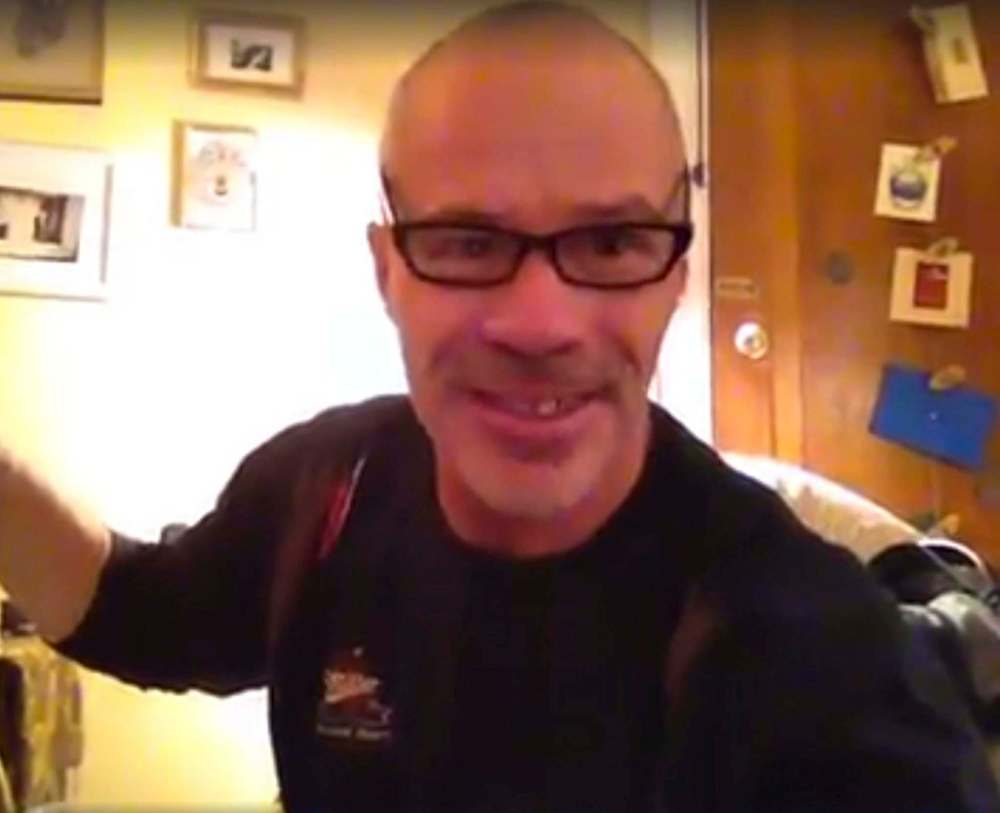‘You rolled the dice with their life’ Man gets 10 years in first case of fentanyl importation
Read this article for free:
or
Already have an account? Log in here »
To continue reading, please subscribe:
Monthly Digital Subscription
$19 $0 for the first 4 weeks*
- Enjoy unlimited reading on winnipegfreepress.com
- Read the E-Edition, our digital replica newspaper
- Access News Break, our award-winning app
- Play interactive puzzles
*No charge for 4 weeks then billed as $19 every four weeks (new subscribers and qualified returning subscribers only). Cancel anytime.
Read unlimited articles for free today:
or
Already have an account? Log in here »
Hey there, time traveller!
This article was published 20/06/2018 (2130 days ago), so information in it may no longer be current.
In the bedroom of a North End rooming house, a Winnipeg man kept notebooks of handwritten instructions on the dark web and bitcoin. His notes were amid mixtures of methamphetamine and cocaine, heroin and fentanyl that were already in his home when an undercover police officer posing as a delivery man knocked on his door.
Identifying himself as Thomas Greene, Ray Csincsa signed for the package he’d been expecting. It was labelled as a shipment of mica from China, but the small foil envelope it contained held 9.26 grams of fentanyl — a synthetic opioid that has contributed to an all-time high number of accidental overdose deaths across Canada.
Two days after the federal government released a report shedding light on an unprecedented number of drug-overdose deaths as casualties of Canada’s opioid crisis, a Manitoba judge imposed a 10-year prison sentence for a first-of-its-kind fentanyl importation case in this province.

There were 122 accidental overdose deaths in Manitoba last year — a 34 per cent increase since 2016. Most of those deaths — more than 70 per cent — involved fentanyl. The prescription painkiller can be 50 to 100 times more powerful than morphine, and its illegal market often trickles overseas from China. In the spring and summer of 2016, some of it was destined for a self-proclaimed cannabis activist in Winnipeg who was known to have a loose grip on reality.
By the time the undercover officer knocked on door of the Church Avenue rooming house at the end of July 2016, the RCMP knew Thomas Greene didn’t exist. They’d started looking into Csincsa, finding a flurry of his pro-drug social media posts, and got a warrant to search his home.
Investigators had in hand the third package of fentanyl that was addressed to 608 Church Ave. and had been intercepted by Canada Border Service Agency officials. The first package arrived in a mail-processing plant in Vancouver in May 2016. It was addressed to R. Csincsa and was labelled as titanium oxide, but it actually contained two grams of fentanyl. The name Thomas Greene appeared on the second package, which was intercepted by CBSA at the FedEx distribution centre in Winnipeg and contained three grams of fentanyl.
Along with the total 14.26 grams of fentanyl that was mailed from China, police found another 1.7 grams inside the suite. All told, it was enough to mix with cutting agents like powdered sugar to sell about 11,000 units of the deadly drug for $20 a pop.
Csincsa pleaded guilty earlier this year to importing the three shipments of fentanyl, but in court on Thursday, the 55-year-old publicly admitted for the first time that he’d planned to become a fentanyl dealer. In what’s believed to be the first case of fentanyl importation dealt with by Manitoba courts, he was sentenced to 10 years in prison.
“For every person that would’ve received some portion of those drugs, you rolled the dice with their life, because you have no idea what kind of drugs you actually got. You have no idea that there was any quality control,” Court of Queen’s Bench Justice Chris Martin said as he imposed the 10-year sentence, which was part of a plea bargain by federal Crown prosecutor Kirstin Elgert and defence lawyer Scott Wilson.
“Other people who might be inclined to do what you did and ultimately roll the dice with some poor addict’s life must know that this will be treated exceptionally seriously by the courts,” the judge added.
Martin said there would have been a strong case against Csincsa for fentanyl trafficking — an allegation Csincsa had previously denied.
“I don’t want you walking out of this court with the view… that you sort of pulled a fast one,” the judge told him, saying he didn’t buy Csincsa’s attempts, in an interview with a probation officer, to offer innocent explanations for the drugs, cutting agents and more than $4,000 in cash police found in his home.
“I’m sorry for what I’ve done and I vow to never be involved with illegal drugs again,” Csincsa told the judge.
Csincsa has “fractured” relationships with his family, and started to use drugs after his marriage ended more than a decade ago, after he was laid off from painting jobs and moved into the rooming house. On his YouTube channel and Facebook page, he described himself as a cannabis activist and advertised a marijuana delivery service using flyers circulated around the city. He was previously convicted of trafficking marijuana and spent time in jail for robbery more than 30 years ago.
In the summer of 2015, Csincsa posted YouTube videos of himself planting cannabis seeds in public locations including near the Winnipeg Police Service’s former Public Safety Building headquarters, near the Manitoba legislative building and the University of Winnipeg as acts of “non-violent civil disobedience to break the law against cannabis prohibition,” as he said in one such “guerilla gardening” video. Cannabis will be legal in Canada as of Oct. 17, as per legislation that received royal assent this week.
Elgert told court Csincsa has talked about opening a cannabis dispensary after he’s released from prison.
Government agencies will be aware of his criminal record and “stop it cold,” Martin told him.
“I would be stunned if at some point in the future, any government agency in any province or federally would allow you to operate a cannabis store,” he said.
katie.may@freepress.mb.ca Twitter: @thatkatiemay

Katie May
Reporter
Katie May is a general-assignment reporter for the Free Press.











